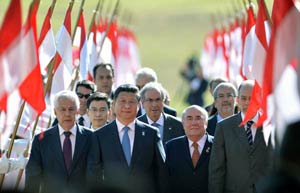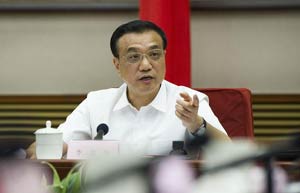For example, a high level of investment liberalization is the direction of all talks. Pre-entry national treatment, which gives foreign investors equal treatment before they invest in the destination country, and the negative list, which opens industries fully for foreigners when those industries are not on the list, are the two major requirements.
Fortunately China has already begun working in that direction - it is testing negative lists in Shanghai and Fujian's Pingtan island and is talking with the US about a bilateral treaty based on the negative list concept. What the country should do now is to pave the way for a nationally applicable list and overhaul its foreign investment regulations. Items that contradict the spirit of pre-entry national treatment and a negative list should be phased out.
Another thing that is highly likely to be included in the future global investment system is the regulation of state-owned enterprises. Since 2011, developed economies such as the US and the EU often have emphasized the need for limits on SOEs and have highlighted the principle of competitive neutrality, which advocates for leveling the playing field for state and private companies in terms of taxation, debts, policies and rules. The West often criticizes China for leaning toward SOEs, and the criticism has grown in recent years.
To cope with this, China needs to do two things. It must reform its SOE sector by advancing mixed-ownership initiatives, opening more fields for private companies and gradually withdrawing SOEs from competitive sectors.
At the same time, China should unite with other emerging economies that have big SOE sectors to win concessions for its State enterprises. These countries also should work together to press developed economies to grant equal treatment to investments by foreign SOEs.
The emerging global rules include another trend. They emphasize the power of destination countries to regulate incoming foreign investments. The 2012 World Investment Report by UNCTAD raised the idea of the "right" degree of state regulation, saying that it is the sovereign right of each country to expropriate private property in the public interest - subject to conditions stipulated by the domestic law of the host state and its obligations under international law. The US, for example, lists environment, national security, labor rights and financial security as top areas it wants to regulate.
As emerging economies become major global investors, developed economies such as the US, Germany and Japan all have intensified national security checks, but the scope of the checks is ambiguous.
The author is a researcher at the Chinese Academy of International Trade and Economic Cooperation in Beijing. The views do not necessarily reflect those of China Daily.
 |
 |
| China stokes plans for railway in S. America |
|
